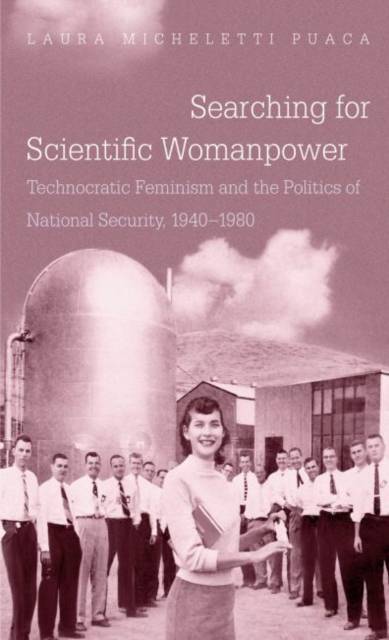
- Afhalen na 1 uur in een winkel met voorraad
- Gratis thuislevering in België vanaf € 30
- Ruim aanbod met 7 miljoen producten
- Afhalen na 1 uur in een winkel met voorraad
- Gratis thuislevering in België vanaf € 30
- Ruim aanbod met 7 miljoen producten
Zoeken
Searching for Scientific Womanpower
Technocratic Feminism and the Politics of National Security, 1940-1980
Laura Micheletti Puaca
€ 60,95
+ 121 punten
Omschrijving
This compelling history of what Laura Micheletti Puaca terms "technocratic feminism" traces contemporary feminist interest in science to the World War II and early Cold War years. During a period when anxiety about America's supply of scientific personnel ran high and when open support for women's rights generated suspicion, feminist reformers routinely invoked national security rhetoric and scientific "manpower" concerns in their efforts to advance women's education and employment. Despite the limitations of this strategy, it laid the groundwork for later feminist reforms in both science and society. The past and present manifestations of technocratic feminism also offer new evidence of what has become increasingly recognized as a "long women's movement."
Drawing on an impressive array of archival collections and primary sources, Puaca brings to light the untold story of an important but largely overlooked strand of feminist activism. This book reveals much about the history of American feminism, the politics of national security, and the complicated relationship between the two.
Drawing on an impressive array of archival collections and primary sources, Puaca brings to light the untold story of an important but largely overlooked strand of feminist activism. This book reveals much about the history of American feminism, the politics of national security, and the complicated relationship between the two.
Specificaties
Betrokkenen
- Auteur(s):
- Uitgeverij:
Inhoud
- Aantal bladzijden:
- 278
- Taal:
- Engels
- Reeks:
Eigenschappen
- Productcode (EAN):
- 9781469610818
- Verschijningsdatum:
- 2/06/2014
- Uitvoering:
- Paperback
- Formaat:
- Trade paperback (VS)
- Afmetingen:
- 155 mm x 234 mm
- Gewicht:
- 408 g

Alleen bij Standaard Boekhandel
+ 121 punten op je klantenkaart van Standaard Boekhandel
Beoordelingen
We publiceren alleen reviews die voldoen aan de voorwaarden voor reviews. Bekijk onze voorwaarden voor reviews.











